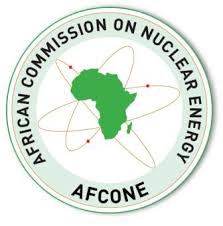Part 1 of 2 Part
Africa is experiencing shortfalls of electrical power, demands for more use of greener energy and threats of droughts to seriously reduce hydropower generation. Many African nations are now considering a move to nuclear power.
The only commercial nuclear power plant in Africa is located in South Africa. However, the International Atomic Energy Agency (IAEA) has reported that ten out of the thirty countries in the world that are considering nuclear power are located in Africa.
Ghana, Kenya, Egypt, Morocco, Niger, Nigeria and Sudan are currently meeting with the IAEA in order to assess their readiness to conduct their own nuclear power programs. Algeria, Tunisia, Uganda and Zambia are also considering the possibility of requesting IAEA assistance.
According to public announcements and the World Nuclear Association, Russia has signed agreements with seven sub-Saharan nations to assist them in the deployment nuclear power. Colin Namalambo is a commissioner of the African Commission on Nuclear Energy. He says that “Africa is embracing nuclear science in general.”
Even though solar and wind power may be a cheaper and greener way to expand the production of electrical power in Africa, nuclear power is still being considered on a continent where one of three people does not have access to electricity.
Benson Kibiti is director of communications for Power for All which intends to provide access to electricity to the over one billion people in Africa with no electricity in the next ten years. He says that off-grid solar is the best choice economically for Africa.
He wrote in an email recently that “While I agree that the continent is in dire need of energy, with 600 million people still living without access to electricity, it takes 10 years and billions of dollars to commission a nuclear power station.” He argued that this fact makes nuclear power a far too expensive choice. He added that off-grid solar is and should be Africa’s energy future.
African nations from Egypt to Ghana are moving ahead with nuclear power programs. They argue that nuclear power is low-carbon and can provided reliable baseline energy in combination with renewable energy sources such as wind and solar. Prince Akor Larbi is a technician with the Ghana Atomic Energy Commission. He says that nuclear power will be clean and sustainable.
In southern Africa climate change has been drying up the lakes behind hydroelectric dams. This has been a major cause of the serious consideration now being given to nuclear power in the affected regions. Those dams provide a majority of electricity for many south African nations from Zimbabwe to Zambia.
The Zimbabwe Electricity Supply Authority was forced to reduce energy production for eighteen hours at Lake Kariba because of low water levels. They are still plagued by power shortages. Zambia is now discussing adding nuclear power to reinforce its energy mix and provide a stable reliable source of power. Mwape Chipala is an energy ministry spokesman. He said, “This is in order to have security of supply from all sources of energy and to prevent what is happening in Lake Kariba as a result of hydropower dependence.”
Please read Part 2 next
Nucear Reactors 770 – Increasing Interest In Nuclear Power Among African Nations – Part 1 of 2 Parts

Written by
in
